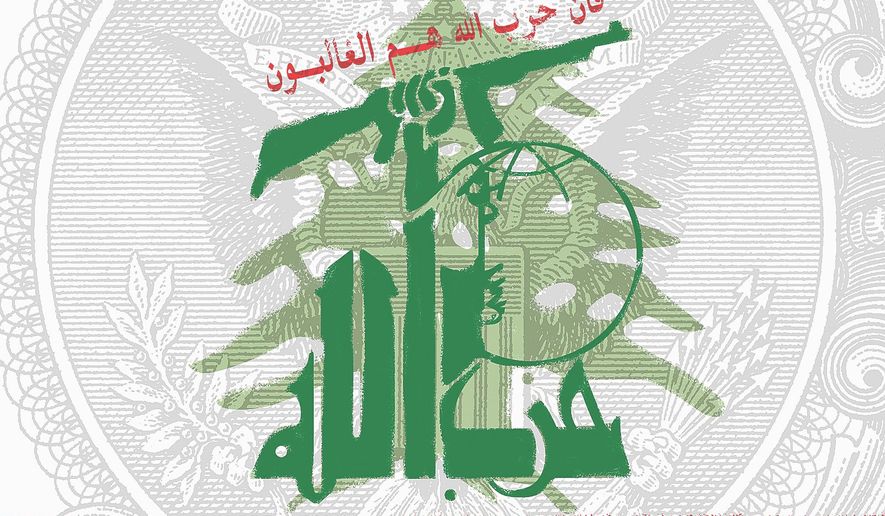By Ziva Dahl
 Current U.S. policy toward Lebanon confirms Voltaire’s observation that “the human brain is a complex organ with the wonderful power of enabling man to find reasons for continuing to believe whatever it is that he wants to believe.” Our Lebanese strategy of providing training and advanced military aid to the Lebanese Armed Forces (LAF) is based on the fallacy that it will promote stability and prevent Hezbollah from taking over the country. News flash: That takeover has occurred. Lebanon already is Hezbollah country and a wholly-owned Iranian subsidiary. We are fighting yesterday’s war. Paradoxically, America is essentially arming Hezbollah, an Iranian proxy and U.S.-declared terrorist group. We need to re-examine our incoherent foreign policy.
Current U.S. policy toward Lebanon confirms Voltaire’s observation that “the human brain is a complex organ with the wonderful power of enabling man to find reasons for continuing to believe whatever it is that he wants to believe.” Our Lebanese strategy of providing training and advanced military aid to the Lebanese Armed Forces (LAF) is based on the fallacy that it will promote stability and prevent Hezbollah from taking over the country. News flash: That takeover has occurred. Lebanon already is Hezbollah country and a wholly-owned Iranian subsidiary. We are fighting yesterday’s war. Paradoxically, America is essentially arming Hezbollah, an Iranian proxy and U.S.-declared terrorist group. We need to re-examine our incoherent foreign policy.
Elliott Abrams, adviser to former Presidents Reagan and Bush, testifying before the House Foreign Affairs Committee in November 2017, commented that Hezbollah runs Lebanon and no important decision can be made without its agreement. Clearly, he said, the LAF, a recipient of U.S. assistance, is “intertwined” with Hezbollah. He was blunt: “We have failed at strengthening Lebanon’s independence [at limiting] the power of Hezbollah and [at making] the LAF a counterbalance to Hezbollah.”
Tony Badran, an acknowledged expert on Lebanon, also confirms that the “actual power on the ground [in Lebanon] [is] Hezbollah.” In a July article, he described how the LAF took part in joint military operations with Hezbollah on Lebanon’s Syrian border, targeting anti-Assad groups. Hezbollah led this action. Furthermore, Hezbollah chief Hassan Nasrallah announced it on TV.
Even the Saudis, backers of Lebanese Prime Minister Saad Hariri, are proposing economic sanctions against Lebanon, no longer willing to support a Lebanese government that allows free rein to Hezbollah.
And there’s this: Mr. Nasrallah publicly made it perfectly clear who is in control in Lebanon, describing the LAF as a “partner” and “pillar” to Hezbollah. Contradicting the American and European fiction that Hezbollah is merely a political participant, Mr. Nasrallah stated that there is no distinction between Hezbollah’s military and political wing.
Since 2006, American taxpayers have given the Lebanese army more than $1.5 billion in military aid. Nevertheless, despite Hezbollah’s partnering with the LAF, the U.S. announced in December that it will provide the LAF $120 million in additional aid. Ignoring the reality on the ground, Assistant Secretary of State David Satterfield explained that support for the LAF “could well serve as a counterweight to Hezbollah’s desire to expand its own influence [in Lebanon], as well as Iran’s reach in Lebanon.”
Secretary of State Tillerson’s Middle East visit last month added to the confusion. First, he made a huge blunder suggesting that Hezbollah has a legitimate role in Lebanon’s politics. Then he backtracked saying, “The United States has considered Hezbollah a terrorist organization. [W]e neither see nor do we accept any distinction between its political and its military arms.”
President Obama, in his single-minded effort to align with Iran, conveniently ignored Hezbollah and its partnership with Iran. He funded the LAF to focus solely on the war against ISIS.
The Trump administration, to its credit, not only includes Hezbollah and Iran when addressing Lebanon, but, more importantly, just hit Hezbollah with new sanctions, calling it “the first wave” in a pressure campaign to impact the terror group’s funding network. We continue, however, the incomprehensible policy of providing aid to the Hezbollah-allied LAF on the premise that it will prevent a Hezbollah takeover of the state — something that has already occurred. What part of this reality doesn’t the administration get?
The stakes are high. Under the very eyes of U.N. observers, in blatant violation of UNSCR 1701, Hezbollah has amassed tens of thousands of missiles, threatening not only every town in Israel, but also American interests in the region. Sen. Lindsey Graham, South Carolina Republican, after recently returning from the Middle East, warned that Iran, through its proxy Hezbollah, may well “entice” Israel into a war in Lebanon and worries, “I don’t see a coherent plan.”
Neither do I. Our policy regarding Lebanon is confusing and based on wishful thinking. We need to face reality. It’s time to rethink our approach.
• Ziva Dahl is a senior fellow with the news and public policy group Haym Salomon Center.
No comments:
Post a Comment